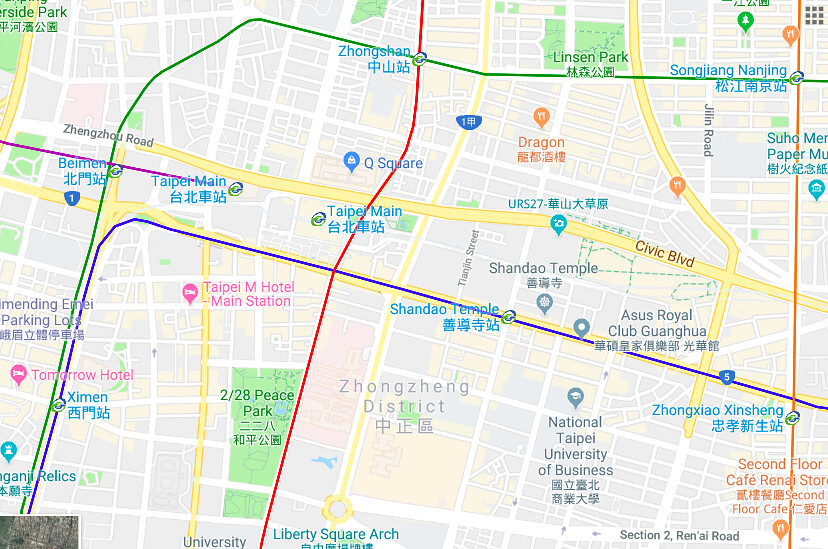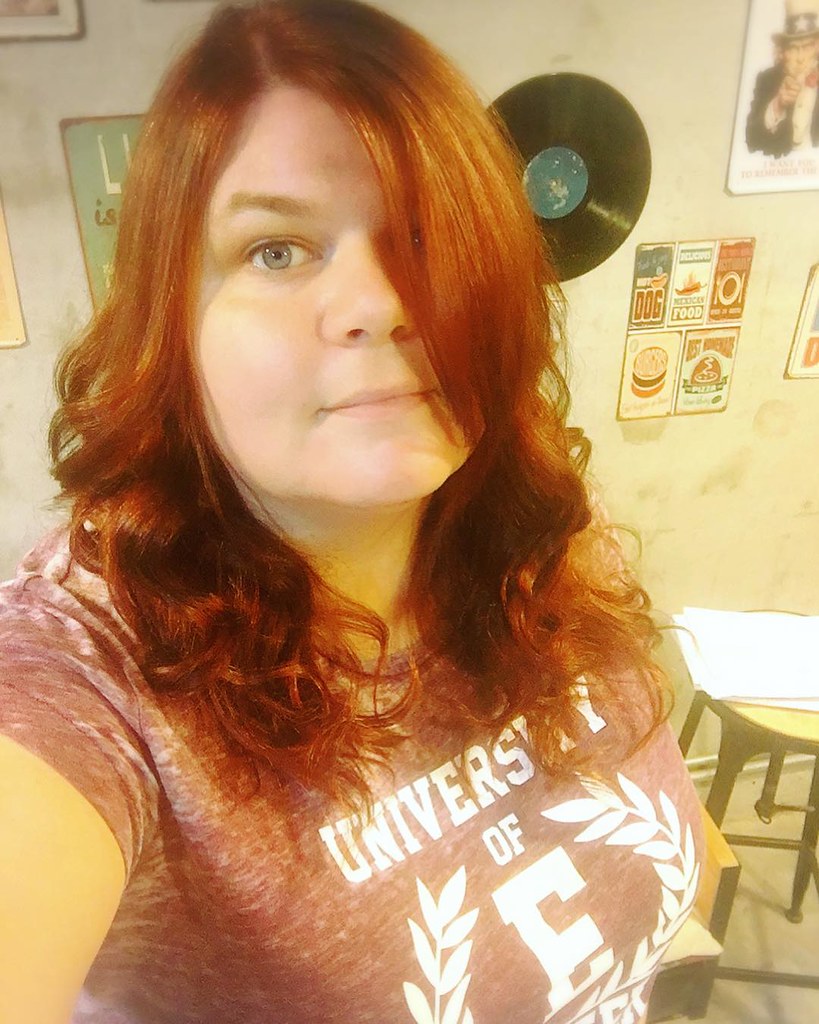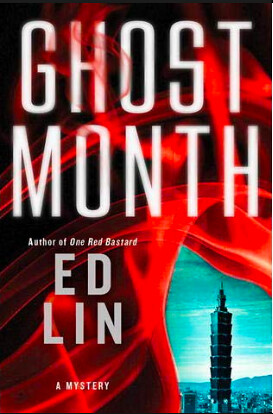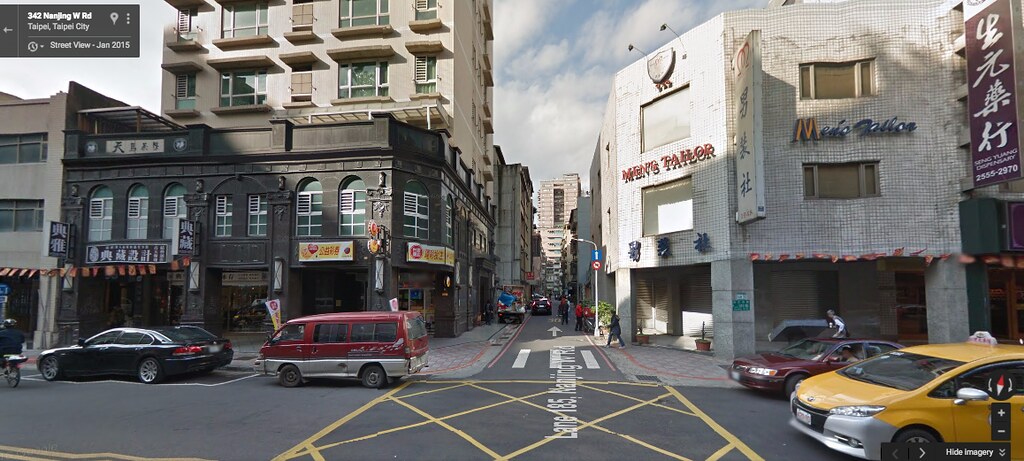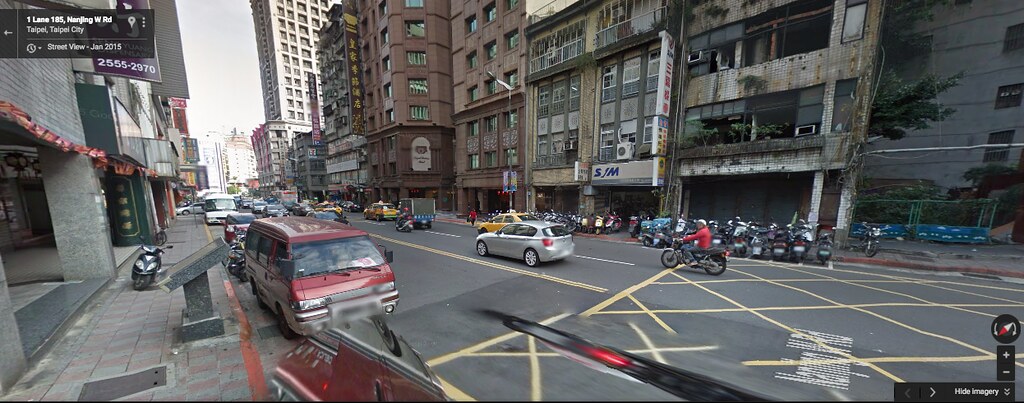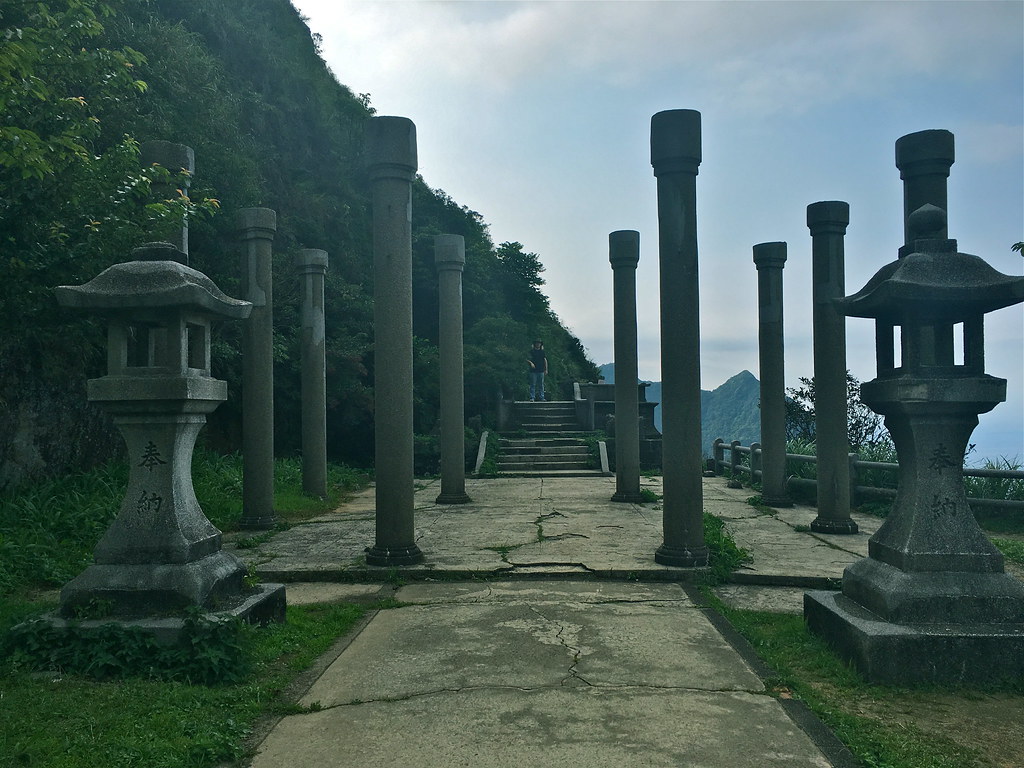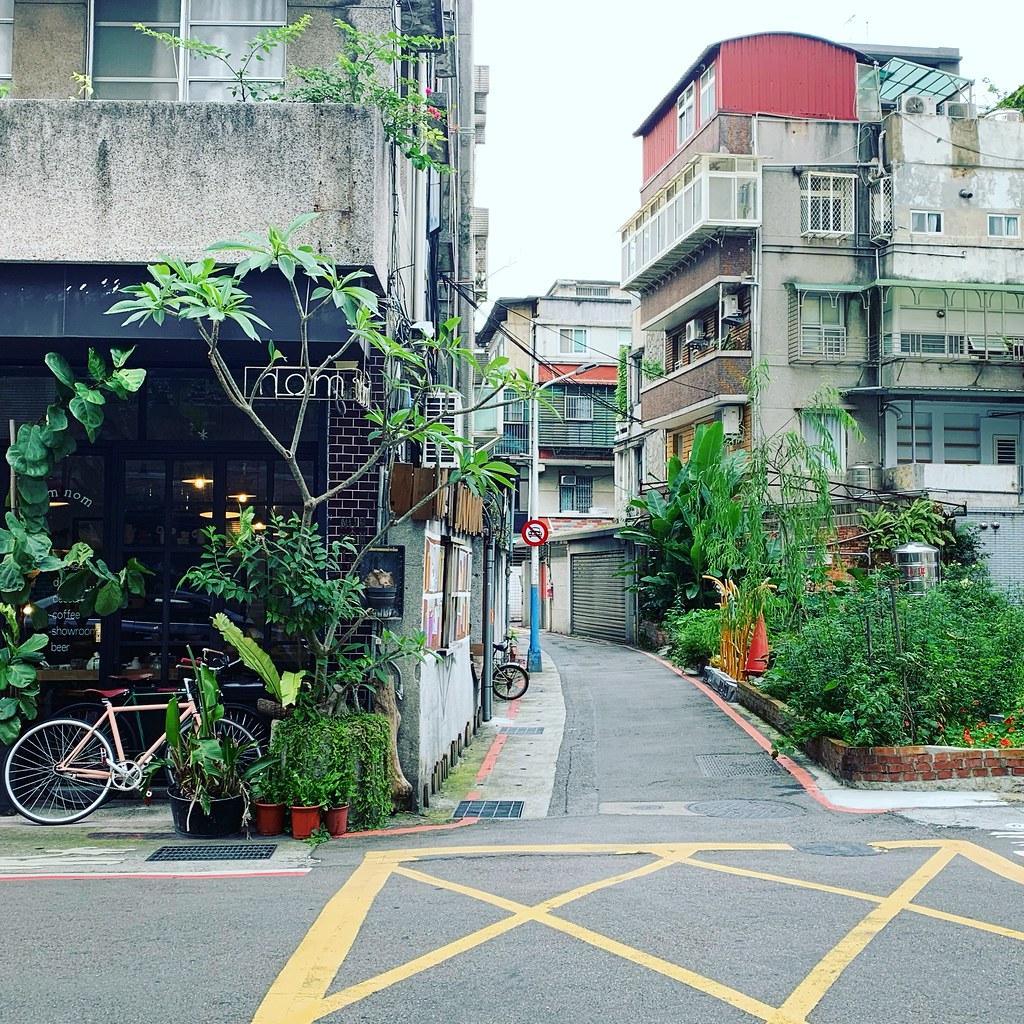
In the past I've done reduxes of my favorite cafes for atmosphere - which is mostly accurate still, though a few places have moved (such as Nancy), rebranded as restaurants (Anhe 65), are now noisy tea shops (Red House Theater), or closed (Mono Cafe). I've done one for good coffee in Taipei as well - though that's a bit more outdated: My Sweetie Pie is long gone and there is now more than one George House in the Yongkang Street area. I don't think Naruwan Indigenous People's Market is still a thing anymore, either, though I haven't been in awhile.
Both posts are now badly in need of an update - most of the places I mentioned are still open, but I've found new haunts that I like just as much.
To deal with that, I'll leave those old posts as they are (links above) and provide here a new redux of where I'm imbibing right now. This isn't just for folks who live here - when I've traveled to other cities with hopping cafe scenes, I've found blogs in English by committed residents of those cities to be helpful guides as to where to go. So I want to be one of the people who does that for Taipei. Plus, as a grad student, I spend a lot of time in cafes getting reading done or writing papers so my list of good spots has grown.
You'll see some of my old entries repeated here, with new ones added, and I've prioritized places with outdoor seating, as that's so hard to find in Taipei. I've also noted where some cafes are near other good options, as seating can be so hard to come by. There's also a bias towards southern Taipei because that's where I live and hang out. Overall there's simply a lot of bias for "places I actually go to", so there's not much more to unite them thematically than that. No pretension to "the best" or "the top 10" or whatever - just my real world.
Instead of looking up each address like it's still 2010, I've gone ahead and made a Google Maps list, which you can access here. (I realized after I'd made it that I could actually create a map rather than just a list, but I'm too lazy to go back and re-do it, so this'll do for now.)
Heritage Bakery and Cafe

This 'newcomer' (opened in 2016) has quickly become a go-to spot in the Taipei Main Station/Ximen area. Pretty much everything about it is excellent - you feel as you walk in that you're somewhere in New York being exceedingly posh in that middle-class hipster sort of way. If that doesn't sound appealing to you - a bit to gentrificationy - don't let that deter you (you're not gentrifying much here - the neighborhood is much the same as it always was). Go for the bright, attractive upstairs seating with exposed brick walls, the very good coffee and other drinks (non-coffee drinkers can choose a variety of teas or fizzy drinks, or beer) and most of all, the desserts.
Oh, the desserts. Westerners who complain that Taipei doesn't have good dessert options can shove some of this cake in their cakehole - from fluffy, perfect, cinnamony cinnamon rolls which sell out quickly to pink guava cheesecake to sea salt caramel Belgian chocolate cake all in generous or even huge servings, this place knows how to do Western-style desserts. The foccaccia sandwiches are quite good too - try the chicken avocado club.
It's not particularly cheap - drinks, sandwiches and a cinnamon roll for 2 will cost you NT$900 and change - but it's not insane. 90-minute limit on holidays and weekends. Otherwise, pretty much the only downside is that the air conditioner is often on full-blast, which makes it a bit chilly. Bring a cardigan.
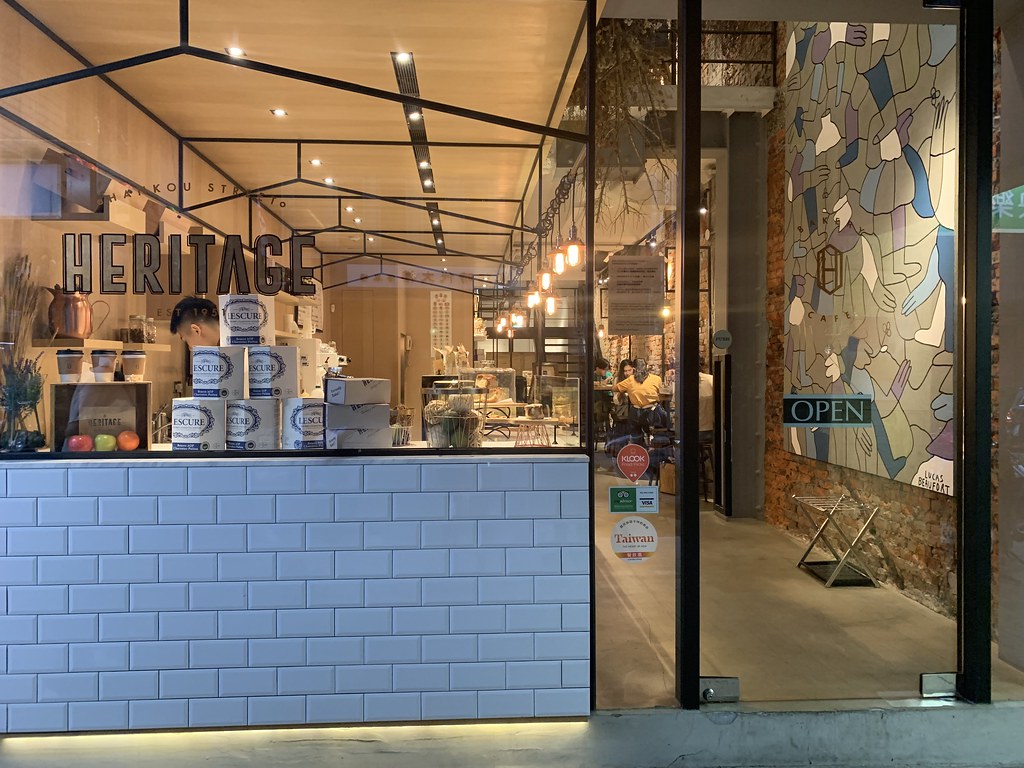
This Cafe ((這間咖啡)
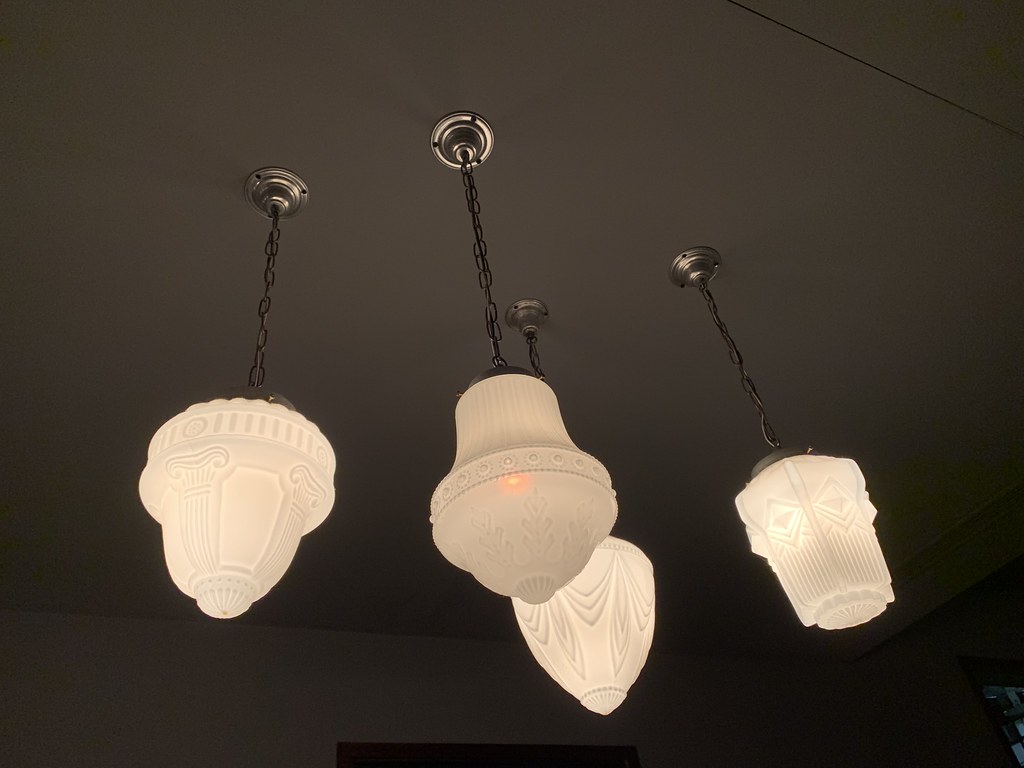
This is quickly becoming one of my favorite work cafes. Very strong social movement bent (check out the "I Support Taiwan Independence" banner in the back), good wifi and lots of plugs - it's quiet and you can usually get a seat. It's a little dimly lit but that just adds to the charm and isn't a problem if you're on a computer, and the table in back is set under antique Taiwanese milk glass hanging lamps. They have non-coffee drinks including beer, and a small selection of sandwiches and salads which are reasonably priced. I think I also like it because the guy who most often works there knows me on sight and knows my order by heart now. Plus they're open pretty late. There are other cafes nearby, such as Perch (nice, but often crowded) and PuiBui, which I haven't tried yet.
Cafe Le Zinc

Set in the back of an old Dihua Street shophouse, Le Zinc can be accessed through the Art Yard ceramics shop from Dihua, or directly from a little lane that snakes around the back. Seating is limited but I've never had a problem, and the well-lit long table has plugs. There's also strong wifi. Windows look out into the narrow courtyard of the old house, where the bathroom is. There's an extensive (but expensive) wine list - house wine by the glass is more affordable - beer, coffee and light food. Music leans toward the jazzy and old-fashioned, which I like. It's a good place to work (on account of the big table, wifi and plugs) and also a good place to meet friends just to chat.
In fact, this whole area is bursting with cafes - if you can't get a seat at Le Zinc, you can surely get a seat somewhere. There are so many that I can't possibly put them all on my map.

Fleisch
Dihua Street is actually bursting with cafes these days - a huge change from my first few years here when it was a somewhat forgotten corner of the city where you could do a little fabric or dry-goods shopping and check out the old buildings, but not much else. If anywhere in Taipei has gentrified, it's here - and yet the fabric and dry-goods sellers still mostly seem to be in business. Where Le Zinc stands out for its table space and wine/beer list, Fleisch has some unique coffee drinks - my favorite being a latte with dried Mandarin orange (dried citrus slices are fairly common dried goods in Taiwan - they make a nice drink steeped in boiling water.)
Hakkafe
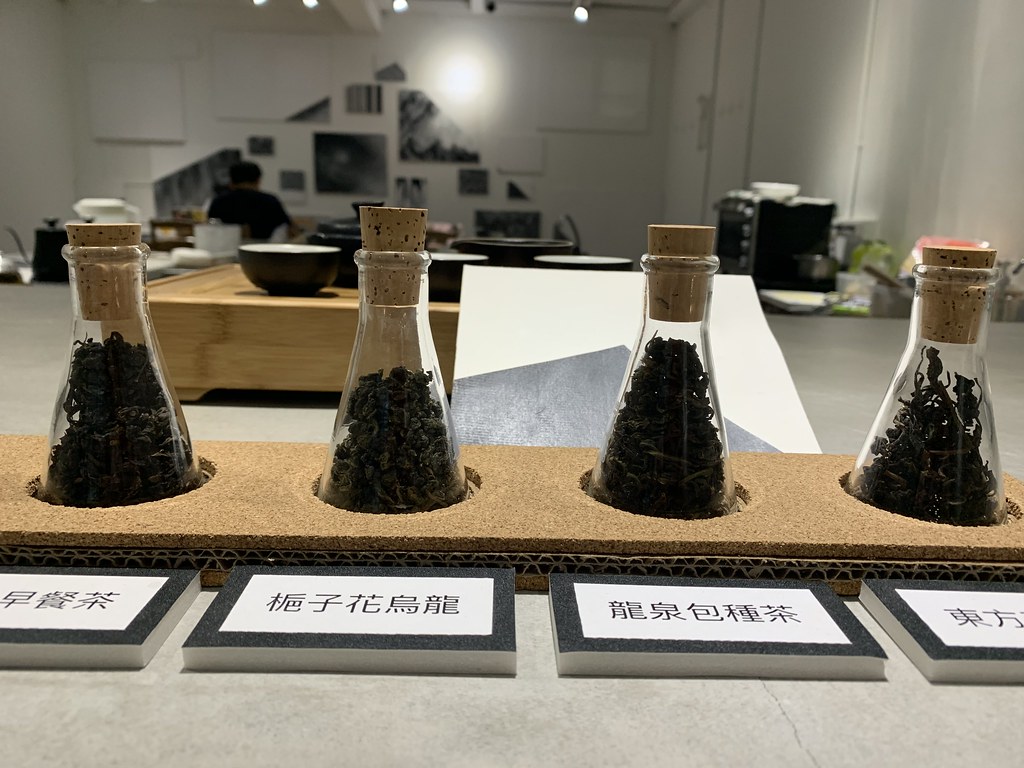
A very new addition to the Dihua Street cafe scene, Hakkafe was opened by an entrepreneurial Hakka guy named Terry who is friendly and enthusiastic about his mission to create a modern cafe space with a traditional Hakka twist. The space is large, minimalist and quiet, done in shades of black, white, gray and wood. We especially liked the Hakka BLT (with Taiwanese pickled green chilis), and the brownie was wonderful. I highly recommend the Hakka breakfast tea - Terry noticed that England has a 'breakfast tea' culture but Taiwan, another tea-drinking nation, does not. So he set out to blend his own. The results are stunning.
This is the only place on the list that doesn't actually serve coffee, but you won't miss it if you try the Hakka Breakfast Tea.
It's also near funky-looking Chance Cafe (一線牽), which I haven't tried yet.
The Lightened
Formerly Backstage Cafe, which had a student activist/social movement theme (yes, a theme, but the former owner was apparently active in those circles), The Lightened is now associated with Anmesty International Taiwan. Located on Fuxing South Road near the back gate of National Taiwan University, The Lightened is unpretentious, well-lit, there are lots of plugs and good wifi, and you can always get a seat. The coffee is good (and fair trade), there's a small selection of beer and the desserts are homemade. On weekends a spunky black-and-white cat might be around.
Rufous Coffee
Almost directly across the street from The Lightened, Rufous is a bit darker, more famous, and is known for having top-notch coffee. Any of the single origin choices are good, and the Irish coffee is spectacular. That said, non-coffee drinkers won't find much here, and they don't have much in the way of food, either. I like it for its cozy, friendly atmosphere, though it can be hard to get a seat sometimes. Not far away there's a 2nd branch, which is quite close to URBN Culture.
Shake House (雪可屋)

I simply cannot write a post about coffee without including my long-time hangout. I don't know why I go to Shake House. There's no wifi, nor any plugs. The bathroom is tiny and through a dilapidated passageway. Lamps are hanging flower pots with ribbons. The chairs are ancient. But I just love the place - it's like, in every city I live in, I need my student hangout in some old building that's falling apart, and I just get attached to it. That's how it is. The coffee is good, the chicken sandwiches above average, the beer selection excellent (and affordable as cafes go), they're open very late and the music is...eclectic. From odd movie soundtracks to church music to Johnny Cash to John Coltrane to whatever. You just literally never know what you'll get. Also, I know the owners and they know me.
If you really need plugs and wifi, Cafe Bastille is just across the lane (and there are other cafes in the area, including Drop Coffee and its new neighbor).
Drop Coffee (滴咖啡)
Drop is another coffeeshop I always include. On Xinsheng Road just across the street from NTU, the space is a renovated Japanese wooden house. The owner is passionate about coffee and does a mean siphon brew. The dog - 橘子 (Orange, although he is black) - is unfriendly in a comical way. There are a few teas on the menu as well as some desserts but really you come here for the coffee. A new place has opened across the lane which has more space, but I haven't checked it out yet.
Cafe Philo
If you go to any sort of political or activist talks or activities, you know Cafe Philo. They have a space downstairs just for that. Upstairs, they have generous space and a wide menu which includes food. I've been going there recently as I'm taking a course (not related to my Master's - because I'm insane) and I can always get a seat.
8%

This large black-and-white space on Yongkang Park advertises itself as an ice cream shop, but you can absolutely get coffee here. They have a good deck if you want to sit outside, and the coffee is high-quality. You can get some interesting coffee drinks here that you may not find elsewhere - I had iced coffee in a glass flask that I could pour over a giant ice ball, and my friend had a huge ball of iced coffee that melted as he poured foamed milk over it.
Caffe Libero
Another classic, I've found myself going here less ever since Red On Tree left (they used to sell excellent French-style pastry confections on-site), and they close early on Sundays. But I still love the place for its outdoor seating, quirky indoor decor, cigar selection and more.
Yaboo
Near 8% and Libero, Yaboo has decent sandwiches and - most importantly - cats! Also a nice atmosphere, but it fills up on weekends. A seat is not guaranteed. But the cats are sweet and friendly.
Angle
Another minimalist place, I like it for its weird shape and good coffee (though all they really have are coffee and a small dessert selection). Big windows let the light in, and it's called Angle because it's set in a weird triangular building outcrop on Rui'an Street (Pillow Cafe, which is also good and used to have a corgi, is nearby. They're under new ownership - hence no more corgi - and friendly.) I find myself here on the occasional Sunday as one can usually get a seat, and there are good views from the bar seats.
Slo-mo Cafe
This place has generous indoor seating and an outdoor area partitioned off from the lane - although smoking is allowed outdoors, it's never too overwhelming. The lane is not particularly busy (except at rush hour) - you may know it as the shortcut between Keelung Road where the gas station is and the Far Eastern Hotel or Carnegie's. The only real downside to sitting outside is that there are some mosquitoes - but that's an issue with all of the outdoor options listed. The desserts are standard cafe fare - though I like the lemon cake - and the glass of white wine I once got on a scorching day was pretty good. Even better? This place never seems to fill up.
Beautiful Tree Coffee (美樹咖啡館)
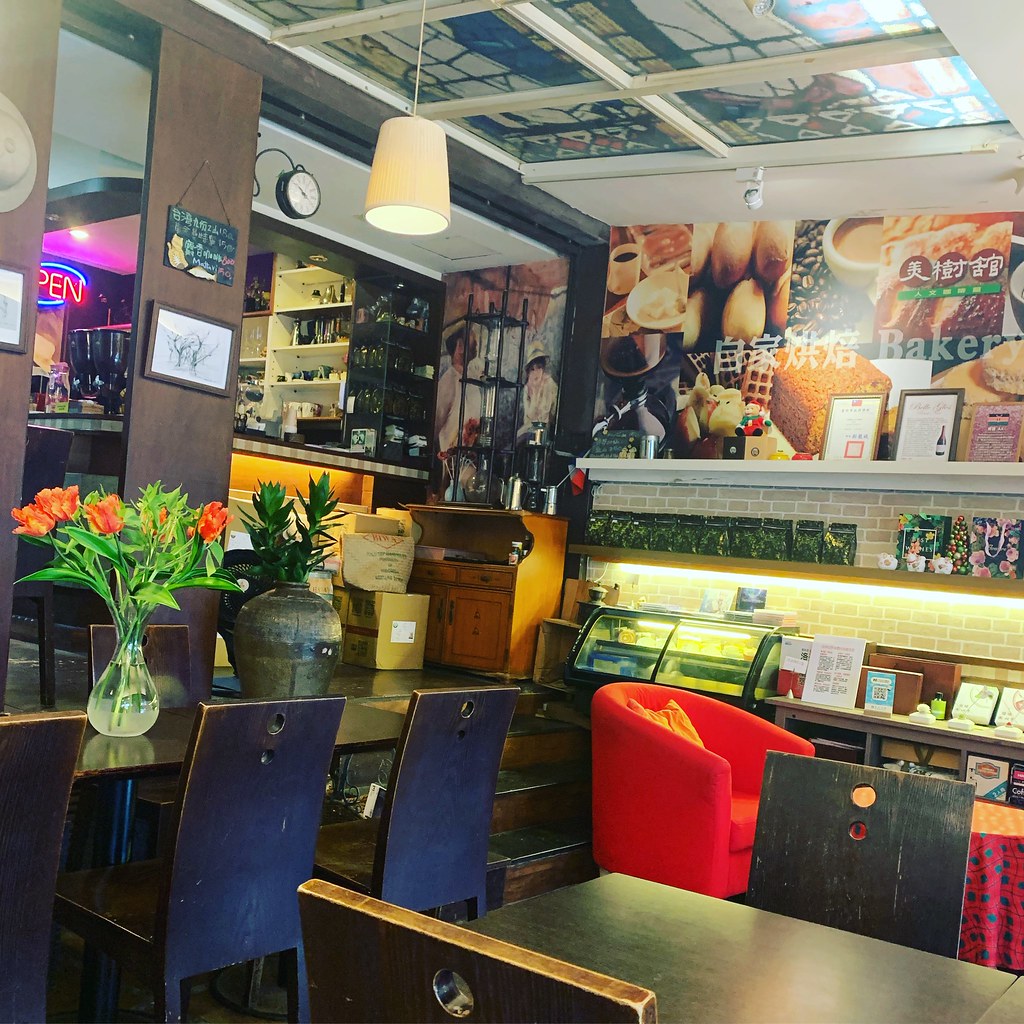
This place is tiny and odd, run by a friendly older man. I absolutely love it. There's something of a rainforest theme going on, with a little outdoor area that has birds. And a ceiling with faux stained glass skylights! I'm not sure how to describe this place beyond that, it sort of defies description and, like many quirky spots, is in a gussied-up old building. The coffee was fine, and I genuinely liked their ham and cheese sandwich. Not too expensive, either. It's very close to Slo-mo as well as another place called Kaldi that I haven't tried yet.
A8 Cafe
A8 is one of my favorite workspaces. It was opened by world-famous Taiwanese indigenous pop star A-mei and employs indigenous staff. The space has a sort of industrial decor (concrete floor, warehouse windows, exposed brick) with good lighting, big shared tables as well as individual tables and couch areas (one of which is set under a real potted tree - my favorite spot), quirky decorative elements, plugs and good wifi. They have a full menu of cafe standards as well as meals and alcohol, but they close a bit early (around 9pm, but they'll let you stick around until they really pack up for the night.) They're closed on Mondays and sometimes take business breaks, but nearby 青沐, which is technically a restaurant, will let you order a drink and just hang out if they're not too busy. There's also a nearby place called Pachamama which I haven't been to, but looks cool.
The FOLKS
I go here because it's near my home - it's not really a workspace but you can sit outside on the little deck, and it's basically a cool, bare-bones espresso bar in a quiet lane.
Cafe Costumice
The Big Mama of cafes where you can sit outside, Costumice is that cafe everyone knows about, and yet you can usually get a seat (not always outside, though). Its major selling point is the huge front deck (bring bug repellent) which feels like an outdoor urban oasis. Though they are a little expensive, they're worth a splurge. There's a modest but pretty good food menu, wine (including a sparkling white which makes for a decent champagne on a hot brunch-y day) and beer.
I'm including The Key's cafe - The Key is my gym - because I've been spending a lot of time there, and they make a real effort to provide quality fare at good prices (and members get discounts). Strong wifi, plugs, a range of sandwiches and a protein-rich chicken meal if you're keto and a good range of drinks beyond coffee make it a fine place to hang out. It's been useful for me to go to the gym, do a short session on one of the cardio machines, and then head to the cafe to get some grad school work done. There are a few tables outside as well. Just down the road is another cafe decorated with hanging plants which looks promising as well - I think it's where the churro place used to be - but I haven't checked it out yet.
Coffee Tree (咖啡樹)
This spot near Zhongxiao Dunhua has a range of fattening desserts, beer, coffee and more. The interior decor is interesting, but we go because they have outdoor seating along a lane popular with pedestrians. It's near Quay Cafe which I haven't been to but would like to try.
Coffeeology
My go-to spot when I'm in the Taipei Arena neighborhood. Coffeeology has truly excellent coffee at great prices. No food - just some cookie-like snacks - but you can get a large latte with Irish cream (real Irish cream, not just a flavor syrup) for very little money by coffeeshop standards. There are a few chairs outside, but the whole space is fairly open so you feel like you're outdoors even though you're technically not. Great beans to bring home at good prices, too.
Zabu (in its new location)
I actually haven't been in ages because it's quite far from where I live, but if I'm in the north Tienmu area, this is my spot. It's the same Japanese-influenced hipster haven it's always been, with great rice balls, cats, and student-funky decor that it used to be in Shi-da all those years ago before the jerks made that neighborhood boring.
cat.jpg
Every few months, I teach a six-week course at the Shi-da school of continuing education, on the campus that Yongkang Street hits as it ends. During one of these classes, I have to give my trainees their final exam and then stick around to pick it up, so I go to cat.jpg while they work.
You'll find cat.jpg one lane behind that Shi-da campus, where are a small klatch of cool places, including Bea's Bistro (friendly, but more of a restaurant), Nom Nom (below) and cat.jpg. There's also a local population of yellow-and-white street cats and an urban garden, some of whom are friendly and all of whom seem to be kept healthy and fed by the local community.
cat.jpg has two of their own cats who are sociable enough (one is firiendlier than the other). They have wifi, a big work table and sandwiches on the menu.
Nom Nom

Nom Nom is not only a great cafe (and place where you can buy ceramic ware), but also a decent brunch spot. Sandwiches and fried chicken are served with luscious little salads, and there's French Toast on the menu. Try the cumin chicken sandwich with apple and honey for sure. Their milkshakes are straight-up luxurious, served overflowing on lipped coasters so they don't mess up the table. The mint chocolate milkshake is garnished with mint leaves and a dried orange slice and then sprinkled with chocolate bits. Also, the place is Peak Taiwanese Hipster.
Classic Coffee (品客經典咖啡)
Classic Coffee, in the Shi-da Road neighborhood which used to be fun, doesn't look like anything special. There's food and perfectly good coffee. But this place has a major selling point - a super friendly old cat who will aggressively love you, and a similarly friendly fat corgi who gets jealous of the cat. It's my favorite cat cafe because that cat is just so in-your-face with the cuddles and snuggles, and it's a fluffy cat, too.
Notch (Front Station)
I don't typically expect funky, studenty coffeeshops in the Taipei Main Station neighborhood - it's an area loaded with cram schools, cheap shopping, a few government buildings...not a place where students really hang out. But this particular branch of Notch brings it. It's also not particularly far from the Legislative Yuan, so if you need a place to go after a good hearty protest, this is a great choice. When the same-sex marriage bill was passed last month, I spent a period of time here out of the pouring rain, watching the deliberations at the Legislative Yuan on their good wifi (far better than trying to connect alongside 20,000 other people standing outside in bad weather).
Look Upstairs (上樓看看)
An excellent 'work cafe' in Xinyi near City Hall Station, this place has good drinks and beer. There's food too, but it's a little expensive. Lots of space, good light, wifi and plugs - you can settle in here to get things done, especially upstairs. Some tables and countertops even have desk lamps.
2730 Cafe
Another cat cafe! This little place in a tiny shack-like building is very close to Liquid Bread and is attached to a vintage store (of which there are not too many in Taipei). I've only had the beer and coffee - they have a DPP beer! Which...odd, but tasted fine! But a big selling point here are the two cats, one black and the other white. It's also easy to get to from Xinyi, an area that isn't exactly known for its great cafes, so it's a solid choice in that neighborhood.
BreakFirst Cafe & Studio (棗點咖啡)
Sometimes we take care of a friend's pets in the Dazhi area, and this is our go-to when we're around there. The main selling point (beyond seats usually being available) is that they have several cats!
Lion / LineUp Dessert

I ended up liking this place because I reviewed it for FunNow - but it's a funky little spot in an area not known for cafes (the Zhongshan Elementary School MRT area), with great desserts and solid croque sandwiches. The coffee is just OK, but I go for the desserts.
Jing Xin Cafe (晶心咖啡館)
To be honest, this isn't a place I go to hang out - it's sort of a hybrid coffeeshop and crystal shop in an odd corner of Taipei. But, they roast Taiwanese coffee beans which make great gifts (and they sell them at a reasonable price), so I wanted to include them for this reason.


